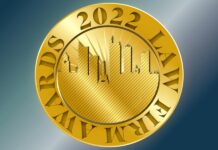The country is at a crossroad as it seeks to define virtual assets within its regulation
Non-fungible Tokens (NFTs) are rising in popularity in South Korea. The country’s high-tech industry, paired with its prowess in pop culture products such as K-pop and video games, make it a fertile ground for the NFT business. According to Google Trends, as of 1 November 2021, South Korea ranks fourth in the world in terms of interest in buying NFTs.

Partner and co-founder at Kobre & Kim in New York
Tel: +82 2 369 1212
+1 212 448 1201
Email: michael.kim@kobrekim.com
Searches for NFTs overtook cryptocurrencies at a ratio of 74% to 26%, underscoring NFTs’ stardom in the virtual assets market. Recent NFT sales also speak to this enormous popularity. The digital animation work by famous Korean artist Jang Koal of a woman petting a cat, titled Mirage Cat 3, sold for 3.5 Bitcoin, or about KRW200 million (USD168,314), and Mr Unknown’s work, Money Factory, sold for 200 Ethereum this April, or more than KRW1.1 billion.
Despite its popularity, the legal status of NFTs under Korean law remains indeterminate. Although the recently passed amendments to the Act on Reporting and Use of Specific Financial Information provided a great deal of clarity on cryptocurrency regulation, the application of the law on NFTs is not yet clear, mainly on whether NFTs would be considered as virtual assets defined by the act. Given Korea’s potential as a major player in the NFT marketplace, regulatory developments concerning NFTs deserve close attention.
NFTs’ popularity

Principal at Kobre & Kim in Seoul
Tel: +82 2 369 1226
Email: daniel.lee@kobrekim.com
Major Korean corporations such as Samsung Next and CJ OliveNetworks (CJ Group’s IT branch) have taken significant steps to invest in NFTs and develop NFT-based ticketing solutions. Established financial institutions such as Ground X (a blockchain subsidiary of Kakao), Mirae Asset Securities, Shinhan Bank and Hanwha Asset Management have endorsed the idea of integrating NFTs into their product offerings or business models.
South Korea’s strength in pop culture, with globally popular music groups, TV shows and video games, makes the country fertile ground for the future of NFTs. The first NFT marketplace in Korea (which opened on 31 March 2021) included a “lighter with the ‘casano’ pattern”, which appeared in the popular Korean drama Vincenzo, and have been sold in a limited quantity of 100 as NFTs at 0.13 Ethereum (USD250) per piece.
The big three K-pop agencies – SM Entertainment, YG Entertainment and JYP Entertainment – have announced plans to invest, partner or release NFTs of their artists. BTS, the world’s biggest music group, is also joining the fray. On 4 November 2021, HYBE (BTS’ agency) announced that it had partnered with Dunamu, a blockchain company, to establish a joint venture to branch out into the NFT marketplace.
Although K-pop and Korean dramas tend to attract more headlines, the true engine of Korea’s pop culture machine is its video game industry. In 2020, 66.9% of Korean exports in the content industry were video games, dwarfing the sales of K-pop (6.4%) and TV shows (4.5%). Major South Korean gaming companies such as have announced plans to integrate NFTs into their products and platforms.
Upon the announcement, the share prices of NCSoft rose by 30% (the daily limit in the South Korean stock market) and Krafton by 22%. Another player, Kakao Games, announced its partnership with Lion Heart Studio, the developer of the most popular online game this year, “Odin: Valhalla Rising,” to enter the global NFT market.
However, whereas the development of NFT-integrated games are allowed, South Korea’s Game Rating and Administration Committee has banned cashable and tradable NFT-integrated games in the country, thus making these games only available outside of South Korea.
Regulating virtual assets

Of counsel at Kobre & Kim in Washington
Tel: +1 202 664 1944
Email: nathan.park@kobrekim.com
Despite its popularity and promise, the legal status of NFTs under Korean law is unclear. The debate centres around whether NFTs are virtual assets as defined by Korean law. On 5 March 2020, the National Assembly passed a series of amendments to the Act on Reporting and Use of Specific Financial Information, greatly clarifying the regulations of Korea’s thriving cryptocurrency industry.
Under the amendments, a virtual asset is defined broadly as an “electronic certificate with an economic value that may be traded or transferred electronically,” thereby allowing future developments and innovations to be included under these regulations.
Yet even this broad definition has several exceptions: (1) An electronic certificate that cannot be exchanged with money, goods or services, or a certificate of which the issuer restricted the exchange with money, goods or services; (2) electronic versions of the previously existing asset classes, or electronic certificates that were not intended to serve as real-life currency; (3) electronic versions of stocks, promissory notes or letters of credit; and (4) currencies and items used in video games.
A virtual asset business must register with the Financial Intelligence Unit (FIU) of South Korea’s Financial Services Commission (FSC), which involves certifying that it has an adequate information security management system and does banking under its real name. The virtual asset business must also maintain a statutorily required level of record-keeping to meet the amendments’ anti-money laundering and know-your-customer requirements. Virtual asset businesses will need to invest in compliance infrastructure in an under-regulated industry globally to meet these requirements.
Virtual assets framework
Whether NFTs would be included under this umbrella definition remains unanswered, and the Korean government is yet to produce a unified response. Whereas the FSC, the country’s financial regulator, announced that it might impose a tax on NFTs by treating them as virtual assets, the Ministry of Strategy and Finance was more hesitant, saying the status of NFTs as virtual assets is as yet undetermined.
The broad and inclusive definition of virtual assets under Korean law gives enough room for NFTs to be considered virtual assets. As above, a virtual asset is an “electronic certificate with an economic value that may be traded or transferred electronically”. NFTs satisfy this definition, as they hold economic value, are traded and transferred electronically, and function as electronic certificates.
The next question is whether NFTs fall under one of the exceptions to this definition. Electronic certificates that cannot be exchanged with money, goods or services, or of which such exchanges are restricted, cannot be considered as virtual assets.
According to guidance from the Financial Action Task Force (FATF) on virtual assets – the international organisation dedicated to combating money laundering and terrorism financing – examples of these would be airline miles, credit card awards, or similar loyalty programme rewards or points. As NFTs can be exchanged with money (as we have seen in their high-value sales) and generally are not considered a loyalty programme reward, they likely do not fall under this exception.
The closer question is the video games exception. Korean law also excludes from the definition of virtual assets tangible and intangible items collected from video games, such as currency and items used in video games, as defined more specifically by the presidential decree. The presidential decree excludes items obtained from video games from betting or encouraging betting, and those obtained illegally (e.g. hacking).
Yet, whether NFTs in video games fall under this exception may depend on the character of each NFT. For example, if a particular NFT is more of a digital artwork that needs to be purchased by the users rather than in-game currency, or items obtained via gambling, such an NFT arguably would not fall under this exception.
Ultimately, factors outside of domestic politics may affect the Korean government’s decision. As a member of the FATF, South Korea is bound to its guidelines as the “industry standard for anti-money laundering and counterterrorism financing obligations”. According to FATF’s new guidelines, NFTs are virtual assets.
Earlier this year, the FATF revised their guidelines to define virtual assets as convertible or interchangeable, replacing their prior definition of virtual assets as being fungible. On 28 October, the FATF recommended that NFTs be included in the definition of virtual assets, and thus subject to virtual asset regulations. South Korea may follow the FATF’s lead and treat NFTs as virtual assets. Doing so comes with practical benefits, such as taxing and preventing the NFTs from being used for money laundering and other criminal purposes.
If South Korea decides to treat NFTs as virtual assets, further clarifications in the law will be necessary. For example, a virtual assets business must be registered. Individuals operating an unregistered virtual assets business may face up to five years imprisonment, or a fine of not more than KRW50 million.
Would the registration requirement extend to an individual artist offering NFTs of his/her digital artwork on a peer-to-peer basis for a relatively low amount of money? The precise taxation category also remains an issue. The FSC stated that NFT transactions should be taxed as other income, but the income generated from artwork sales is usually considered to be capital gains.
Should South Korea begin treating NFTs as virtual assets, market participants should familiarise themselves with the regulations concerning virtual assets and virtual asset business, especially those regarding certification and anti-money laundering security requirements.

Kobre & Kim
9/F, Tower B, The-K Twin Towers
50, Jong-ro 1-gil, Jongno-gu
Seoul – 03142, South Korea
Tel: +82 2 369 1212
www.kobrekim.com





























